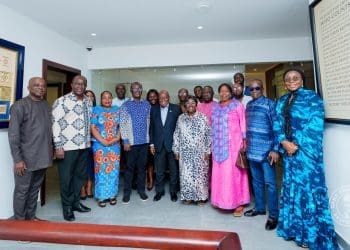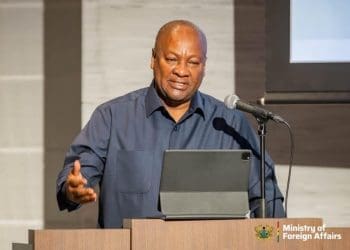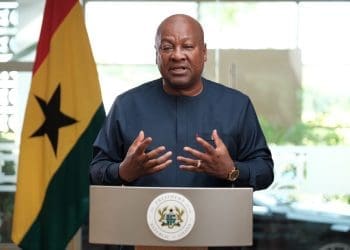Economic policy analyst Senyo Hosi has paid glowing tribute to the late former First Lady, Nana Konadu Agyeman-Rawlings, describing her as “the Yaa Asantewaa of our time” for her fearless activism and transformative influence on Ghanaian society.
Speaking on Citi FM’s Big Issue following the announcement of Mrs. Rawlings’ passing, Mr. Hosi said her impact on Ghana’s political and social evolution transcended partisan boundaries and continues to shape the lives of millions of women across the country.
“Her impact transcends her party,” Mr. Hosi said. “The millions of women who benefited from her activism and advocacy were not painted in party colors.”
According to him, Nana Konadu Agyeman-Rawlings redefined the role of a First Lady in Ghana by stepping beyond ceremonial functions to become a formidable force for women’s empowerment, social reform, and national development.
“She did not just follow the path of being a First Lady. She carved it. She redefined it,” Mr. Hosi remarked, contrasting her activism and visibility with that of her predecessors.
Champion of women’s rights and social reform
Mr. Hosi credited the late former First Lady with using her influence and political insight to promote landmark policies such as the Intestate Succession Law, which protected the rights of widows and children, and for championing gender equality through the 31st December Women’s Movement.
“She understood what political power could do, and she used it,” he said. “She leveraged her position to push for legal and social reforms that changed lives.”
He further acknowledged her pioneering role in introducing Ghanaian women to the global feminist movement, referencing her leadership at the 1995 Beijing Conference on Women, which shaped global gender policy for decades.
“If it wasn’t Nana Konadu, who knew about the Beijing Conference?” he asked.
“She became a symbol and an example of what a First Lady could do and could become.”
A legacy of courage and conviction
Mr. Hosi noted that many of the advances in women’s education, leadership opportunities, and economic participation that Ghanaians now take for granted were built on the foundation of Nana Konadu’s activism.
“We’ve come from far,” he said. “It had to take people to stand in the gap and force a transformation in our cultural orientation to put women in their rightful place. And Nana Konadu was there. She did it.”
While acknowledging that her assertiveness and outspoken nature sometimes attracted criticism, Mr. Hosi said those very traits made her a powerful agent of change.
“She was not the type to stay silent or accept being ignored,” he said.
“She loved to be in the centre of the action, and that often rubbed people the wrong way. But she made relevance count.”
Comparing her resilience and boldness to that of the legendary Ashanti queen mother who led a war against British colonial rule, Mr. Hosi declared:
“She was absolutely the Yaa Asantewaa of our time. And she did not just do it to exercise power irrationally. She impacted lives.”
Enduring relevance
Reflecting on her later years, Mr. Hosi observed that Mrs. Rawlings and her late husband, former President Jerry John Rawlings, were deeply pained by what they saw as the erosion of the political ideals they had once fought for.
“They were struggling with the death, in their opinion, of the ideals of a political movement and orientation that they lived and died for,” he said.
Yet, he maintained that her unyielding candour, authenticity, and conviction remained hallmarks of her character to the very end.
“She was never fake. She told you what she thought. You didn’t need to agree with her, but you knew where she stood,” he said.
A lasting legacy
Mr. Hosi urged Ghanaians to remember Nana Konadu not for her political controversies but for her courage, conviction, and contributions to national progress.
“She used her influence to shape time, and her legacy will remain a part of Ghana’s social and political story forever,” he concluded.











